As a parent and Montessori Guide, I know that you are here looking for some guidance in Montessori education. It is easier when we understand a step by step curriculum over trying to make sense of obscure information from 100 years ago (yes the Montessori method is that old!).
Montessori education continues to inspire parents, teachers, and caregivers with its child-centered approach, inviting children to explore, discover, and thrive at their own pace. But what does a Montessori curriculum really look like, and how does it guide children from their very first days through each remarkable stage of growth?
If you’re curious about bringing Montessori into your home or classroom, this step-by-step overview will show you how each stage unfolds—with insights, helpful resources, and encouragement for every step of the way!
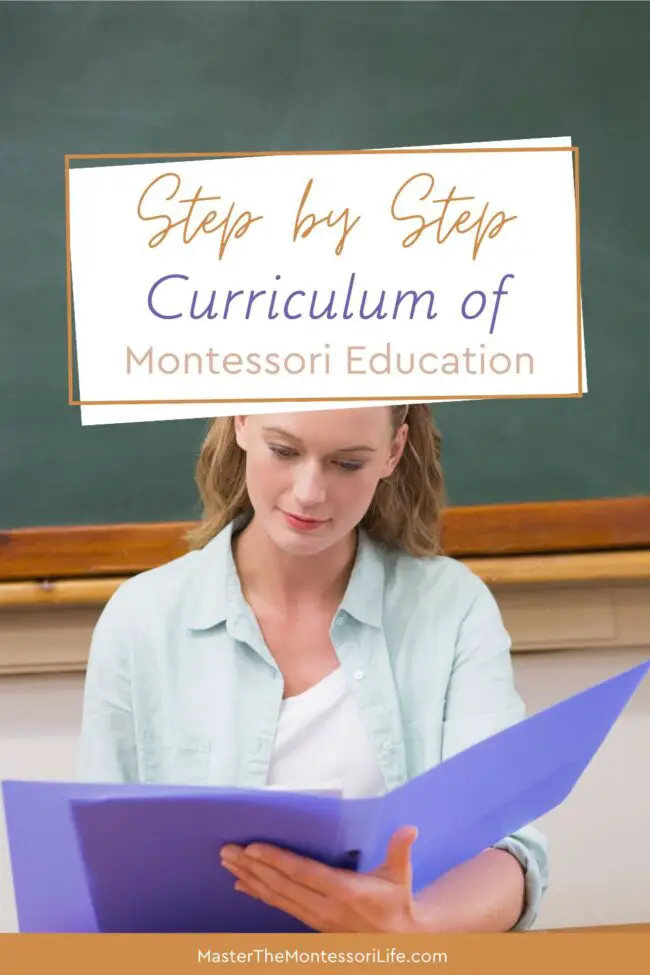
Understanding the Foundations of Montessori Education
The Montessori Method was created by Dr. Maria Montessori, a pioneer devoted to unlocking the potential of every child through respect, independence, and an environment crafted for natural learning. At its heart, the Montessori curriculum follows the child’s interests and needs, using hands-on materials and a carefully prepared setting.
This environment (another name for classroom) nurtures the child’s curiosity, concentration, and joy for learning (learn more about the Montessori work cycle here). It is built on the concept of “sensitive periods”—special windows where children quickly and joyfully soak up new skills.
Lessons and activities are designed to meet the child right where they are (a common way of saying it in Montessori lingo is “follow the child”), supporting each unique stage of development. To get started, many families and teachers find it helpful to use the Starting Montessori at Home digital book.

Exploring the Key Curriculum Areas Step by Step
A step-by-step Montessori curriculum covers several main areas that work together to support the whole child:
- Practical Life (develops independence, care for self and environment)
- Sensorial (refines senses and observation skills)
- Mathematics (introduces numbers, patterns, and problem-solving)
- Language (builds vocabulary, reading, and writing)
- Cultural Studies (geography, history, and more)
- Science (all of the branches such as zoology, anatomy, etc)
- Fine Arts (art, music, etc)
Each area grows more complex as children master new skills. For little ones, activities might start with pouring water or sorting buttons. As children develop, they move on to more advanced materials, like the Montessori Sensorial Binomial Cube or Montessori math tools.
Planning ahead can make a big difference in staying organized, and resources like the Planning Montessori at Home digital book offer guidance and inspiration. For more detailed guidance on teaching each area, Teaching Montessori at Home digital book provides step-by-step examples.

Moving Through the Montessori Stages
Montessori education recognizes four main planes of development, each with distinct characteristics and needs. The curriculum adapts to these natural stages:
- Birth to 6 (early childhood): Focus on sensory exploration, movement, and independence. Simple routines and hands-on materials create a secure base for lifelong learning.
- 6 to 12 (childhood): Broader academic work, deeper reasoning, and collaborative projects emerge. Children are encouraged to research, experiment, and think critically.
- 12 to 18 (adolescence): Focus turns to self-discovery, community involvement, and preparing for adult life.
- 18 to 24 (young adulthood): A time for refining skills, independence, and greater purpose.
Each step is supported by direct experiences and freedom within limits. You’ll find helpful articles on topics like Montessori principles at home during a baby’s first year and why Montessori matters from birth. Whether teaching a toddler to pour a cup or supporting an older child’s science project, the Montessori curriculum adapts to each learner’s needs.
Bringing Montessori to Life With the Right Resources
Implementing a Montessori curriculum is a rewarding adventure! With so many areas to explore, many families and guides appreciate having step-by-step materials and planning tools. Being prepared is the best tip that I can give you. Second tip? Be consistent!
The Montessori Curriculum Resources section is a fantastic place to find printables and guides matched to each stage and subject. For those new to Montessori or looking for extra support, bundles like the Montessori Way Foundations Framework can bring clarity and confidence to your daily routine.
Every child is unique, and a well-prepared Montessori environment helps them shine. With guidance, patience, and quality materials, you’ll watch as children blossom into curious, independent, and capable learners.
Discover More, Start Your Montessori Journey Today
Montessori education is a living curriculum, thoughtfully crafted for each child’s development and interests. With a step-by-step approach, supportive community, and access to quality resources, anyone can bring the beauty of Montessori into their own space.
Explore more inspiration, tips, and expert advice at Master the Montessori Life, and check out the curriculum resources and digital books at the shop. Begin your Montessori adventure today and empower your children to love learning every step of the way!
Montessori Language Workbook Preschool Skills: Realistic Images, Calm & Clean, Correct Phonetic Sounds Montessori Science and Geography Workbook: Continent Studies, Physical Science, Botany and Zoology
Montessori Science and Geography Workbook: Continent Studies, Physical Science, Botany and Zoology Montessori Preschool Workbook: Pre-K and Kindergarten Activity Book for Kids Age 3+ | Science, Art,
Montessori Preschool Workbook: Pre-K and Kindergarten Activity Book for Kids Age 3+ | Science, Art,
You might also enjoy these relevant topics:
- Motor Skills for Hands the Montessori Way
 The Montessori Method puts a special focus on developing motor skills for hands, recognizing how essential they are for independence, confidence, and curiosity.
The Montessori Method puts a special focus on developing motor skills for hands, recognizing how essential they are for independence, confidence, and curiosity. - Simplify Toy Rotation with Montessori Checklist
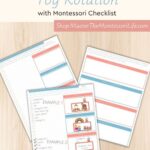 Make Toy Rotation Simple and Fun with the Montessori Toy Rotation Checklist Labels and Chart. Organizing your child’s play area shouldn’t be stressful! That’s why the Montessori Toy Rotation Checklist, Labels & Chart is every parent’s new best friend when it comes to keeping toys fresh and shelves inviting.
Make Toy Rotation Simple and Fun with the Montessori Toy Rotation Checklist Labels and Chart. Organizing your child’s play area shouldn’t be stressful! That’s why the Montessori Toy Rotation Checklist, Labels & Chart is every parent’s new best friend when it comes to keeping toys fresh and shelves inviting. - Sight Words for Toddlers in Montessori Language Arts
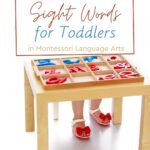 When you look into Montessori Language Arts, you will find a unique and engaging approach that helps toddlers master these important words.
When you look into Montessori Language Arts, you will find a unique and engaging approach that helps toddlers master these important words. - Sensitive Periods in Child Development
 These sensitive periods are unique windows of opportunity that help children easily absorb important skills and concepts.
These sensitive periods are unique windows of opportunity that help children easily absorb important skills and concepts. - Montessori Practical Life Step 1 Guide
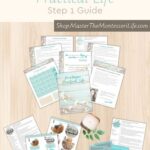 Montessori Practical Life Step 1 Checklists The Easy Way to Keep Your Montessori Journey Organized: Discover an affordable, printable checklist set that helps you organize lessons, track progress, and ensure Practical Life success for every child.
Montessori Practical Life Step 1 Checklists The Easy Way to Keep Your Montessori Journey Organized: Discover an affordable, printable checklist set that helps you organize lessons, track progress, and ensure Practical Life success for every child. - How to Incorporate Montessori Activities into Your Baby’s Daily Routine
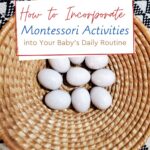 Well, let me get started by telling you that it isn’t just incorporating it into your baby’s daily routine… you need to make it a part of your own as well!
Well, let me get started by telling you that it isn’t just incorporating it into your baby’s daily routine… you need to make it a part of your own as well!

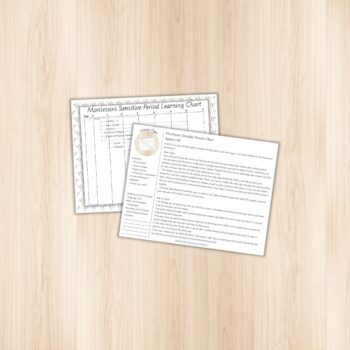
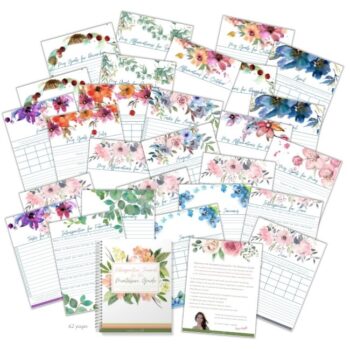
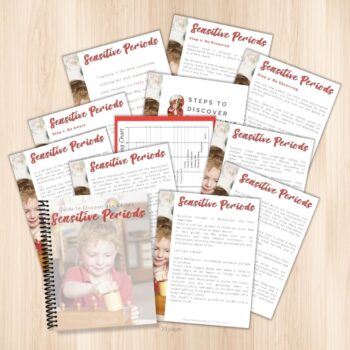




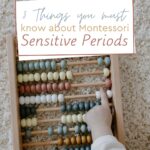
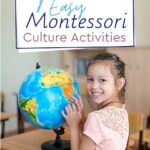
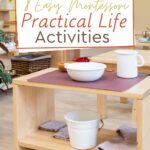
Leave a Reply